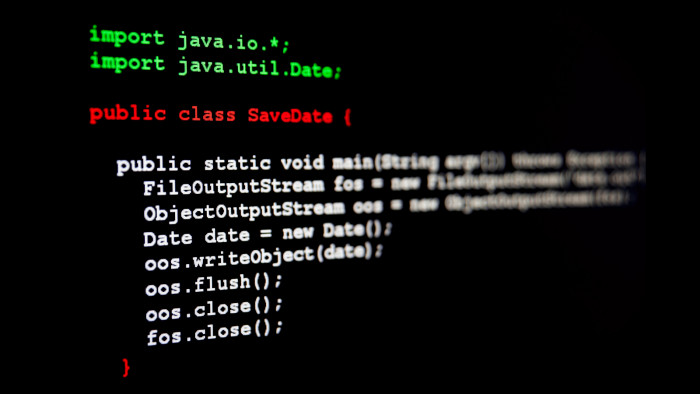
Java is a programming language that has been widely used for over two decades. It is known for its platform independence, security features, and large standard library. With the ever-evolving technological landscape, it is important to consider the future of Java and how it will continue to shape the world of programming. If you have a strong command over the basics of java then you will easily get recognition in the coding world.
Another advantage of Java is its large standard library, which includes a wide range of classes and methods for performing various tasks. This library makes it easy for developers to perform common tasks, such as input/output, networking, and database access, without having to write the code from scratch. Despite these advantages, there are also some challenges that Java faces in the future. One of the biggest challenges is the increasing popularity of other programming languages, such as Python and JavaScript. These languages are often considered more user-friendly and have a larger community of developers. To stay competitive, Java Compiler will need to continue to evolve and improve to meet the changing needs of developers.
Java is a versatile programming language that can be used for a wide range of applications. Some of the most common applications of Java include:
Web Applications: Java is a popular choice for developing web applications due to its platform independence and security features. Java Servlets and JavaServer Pages (JSPs) are commonly used to create dynamic web pages and handle client-server interactions.
Enterprise Applications: Java is well-suited for developing large-scale enterprise applications such as customer relationship management (CRM) systems and enterprise resource planning (ERP) systems. Java's platform independence and security features make it a popular choice for developing mission-critical applications.
Mobile Applications: Java is the primary programming language for Android mobile app development. Android's operating system is built on the Java programming language, which makes it easy for developers to create mobile apps that run on Android devices.
Desktop Applications: Java's platform independence allows developers to create desktop applications that can run on multiple operating systems. JavaFX is a Java-based framework for building rich-client applications, which can be used to create desktop applications with a modern, responsive user interface.
Embedded Systems: Java can also be used to develop embedded systems, which are small, specialized computer systems that are integrated into other devices. Java's platform independence allows it to run on a wide range of devices, including Internet of Things (IoT) devices and smart home appliances.
Scientific and Research Applications: Java is also used in scientific and research applications, such as data analysis and visualization, simulations, and machine learning. Java's large standard library and wide range of third-party libraries make it a powerful tool for working with large amounts of data.
Game Development: Java's platform independence and rich set of libraries make it an excellent choice for game development, both for mobile and desktop games. Java's libraries provide a wide range of capabilities for game development, such as 2D and 3D graphics, animation, and sound.
Financial Applications: Java is widely used in the financial industry to develop applications that handle sensitive financial data. Java's security features make it a popular choice for developing applications such as trading systems, risk management systems, and compliance systems.
Java is a mature programming language that has been widely used for over two decades. Despite its age, Java is still actively developed and has seen several new developments in recent years. Some of the most notable new developments in Java include:
Project Valhalla: Project Valhalla is an ongoing effort to add value types to the Java language. Value types are similar to primitives, but they can be used as objects and can have methods. This feature will allow Java to support more efficient and performant data structures, and it could also lead to more efficient code execution.
Project Panama: Project Panama is an effort to improve the Java programming model for native interoperation. Panama provides a new foreign-memory access API, which allows Java programs to access memory outside of the Java heap. This feature will allow Java to work with data stored in memory-mapped files, off-heap memory, and native memory, making it more suitable for high-performance use cases.
Project Amber: Project Amber is an effort to add new features to the Java language, such as local variable type inference, enhanced enums, and improved switch expressions. These features will make the Java language more expressive, more readable and make the development process more efficient.
Project Loom: Project Loom is an effort to improve the concurrency and parallelism capabilities of the Java Virtual Machine (JVM). Loom introduces new lightweight threads called fibres, which can be scheduled by the JVM and can share resources with regular threads. This feature will make it easier to write concurrent and parallel code, and it will improve the performance of Java applications.
Java SE 15: The latest version of Java SE (Standard Edition) was released in September 2021, which includes new features such as text blocks, hidden classes, and sealed classes. Text blocks are a new kind of string literals that preserve the line breaks and white spaces, making it easier to read multi-line strings. Hidden classes are classes that are not visible to the class loader and are only used internally by the JVM. Sealed classes, on the other hand, are classes that can be restricted to only being extended by certain classes.
JavaFX 15: JavaFX 15, the latest version of JavaFX, was released in September 2021. JavaFX is a Java-based framework for building rich-client applications, which can be used to create desktop applications with a modern, responsive user interface. JavaFX 15 includes new features such as support for macOS Big Sur, improved text rendering, and a new WebView2 component that uses the Microsoft Edge web engine.
In conclusion, Java is a mature and well-established programming language that has played a significant role in the world of programming for over two decades. Its platform independence, security features, and a large standard library make it a popular choice for developing a wide range of applications. However, it faces challenges from other languages and the increasing demand for high-performance applications. Java will need to continue to evolve and improve to stay competitive in the future.













